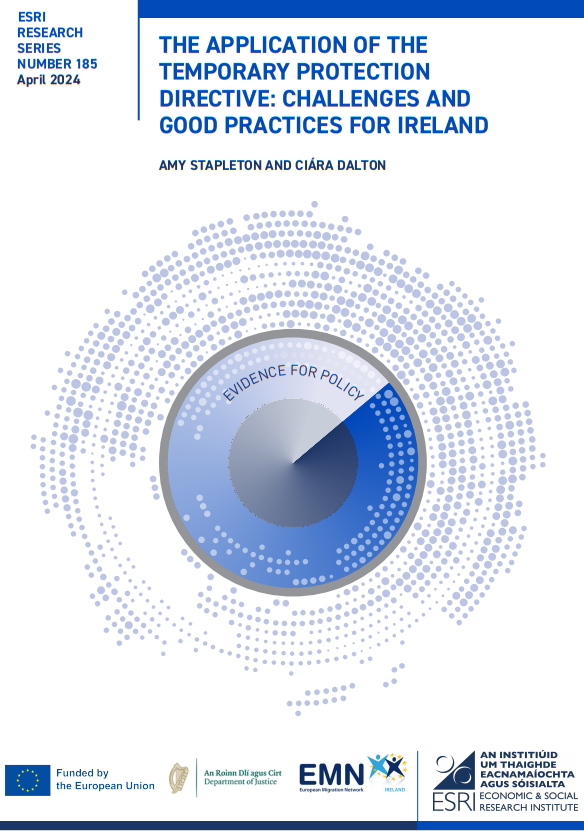New research published by EMN Ireland (within the ESRI) found that beneficiaries of temporary protection in Ireland can face difficulties accessing employment and education. This is largely due to a lack of English language proficiency, compounded by insufficient English language support provision for adults. The report also demonstrates that accessing certain services is a challenge for beneficiaries, with particular issues related to accessing healthcare and suitable accommodation.
This research explores the implementation of the Temporary Protection Directive in Ireland in 2023. The Directive requires the provision of supports and services to beneficiaries such as accommodation, access to employment, social welfare, medical care and education.
Key Statistics
By 31st December 2023:
- 103,458 Personal Public Service Numbers had been allocated to beneficiaries of temporary protection
- 74,912 beneficiaries were accommodated by the State including 16,307 in pledged accommodation
- 18,003 pupils with status as beneficiaries of temporary protection had enrolled in schools across Ireland, with 543 students enrolled in higher education.
Challenges
The Government adopted a rapid, whole-of-government response to the arrival of beneficiaries of temporary protection. Significant civil society response in communities across Ireland often bolstered the government supports by providing frontline services.
Ireland continued to face significant challenges in accommodating beneficiaries of temporary protection. This stemmed particularly from high demand against the backdrop of an overall housing shortage. Accessing medical care was also difficult within the strained healthcare system. Capacity challenges also persisted within the school system.
Access to employment was raised as a concern by stakeholders, related to inadequate English language proficiency and the lack of a coordinated approach to English language support provision. Research by Ukrainian Action in Ireland found the employment rate of those surveyed decreased as English proficiency reduced, while Central Statistics Office data show many beneficiaries cite lack of English language skills as a challenge in securing employment. Additional challenges hindering access to employment related to difficulties in accessing childcare and transportation, posing significant barriers, especially for those residing in rural areas.
Managing access to both the Irish and online Ukrainian curricula was also reported as a challenge, particularly at the post-primary level.
Good practices
- A centralised ‘one-stop shop’ for arrivals from Ukraine at the Citywest Transit Hub in 2023 to streamline registration, PPSN allocation, accommodation referral, and support services.
- Immediate access to Jobseekers’ Allowance for beneficiaries, collaborative efforts between the Department of Social Protection, County Councils and various agencies, as well as outreach initiatives and events to support access to the labour market.
- Educational support initiatives, including Regional Educational and Language Teams and guidance issued to schools by the Department of Education, to address the educational needs of child beneficiaries of temporary protection.
- A streamlined medical card application process for beneficiaries.
- Ukrainian Community Response Forums, which facilitated collaboration among organisations to address the needs of beneficiaries of temporary protection and local host communities.
Recent key developments
On 12 December 2023, the Government revised the supports for beneficiaries of temporary protection arriving in Ireland. The change came into effect on 14 March 2024. These changes include a reduction in the weekly allowance for new arrivals in State-supported accommodation and a maximum 90-day stay in state accommodation. According to the Government, these changes were required to ensure Ireland can continue to meet its obligations towards beneficiaries of temporary protection.
See more:
- The application of Temporary Protection Directive: challenges and good practices for Ireland: EMN Ireland report
- Changes in supports for new arrivals from Ukraine


